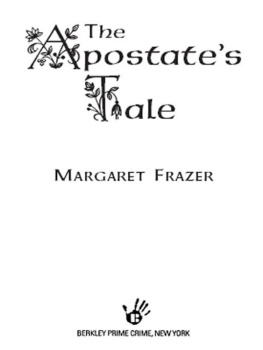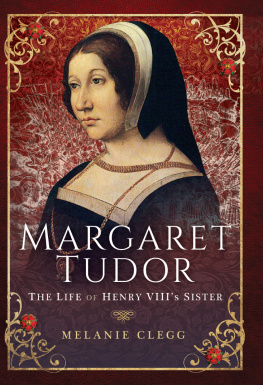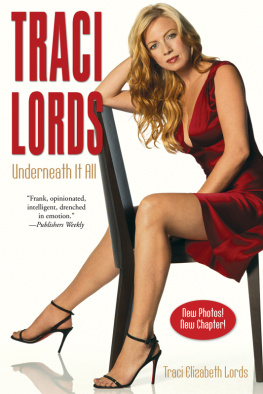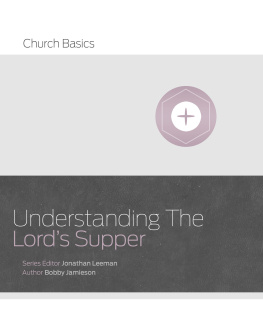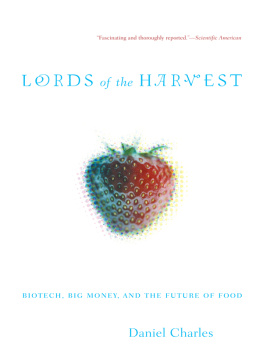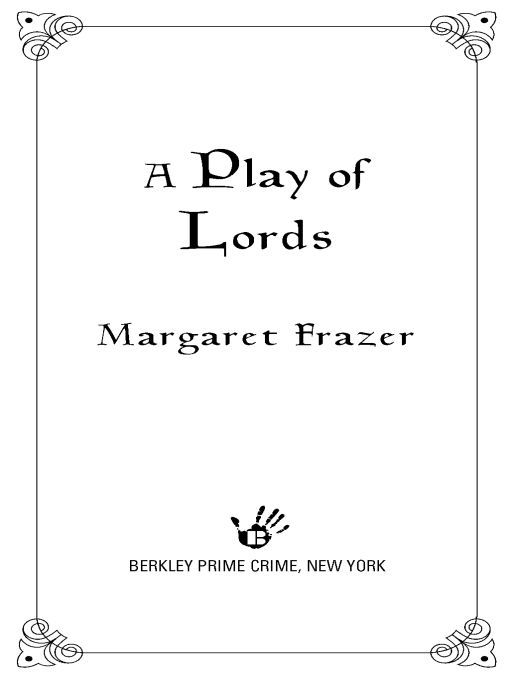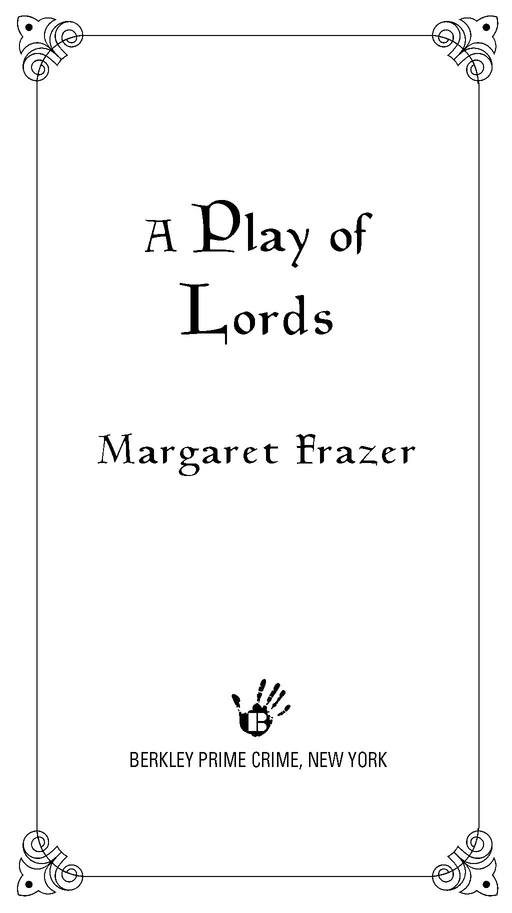Table of Contents
The Middle Ages Come to Life... to Bring Us Murder.
A PLAY OF DUX MORAUD
Deftly drawn characters acting on a stage of intricate and accurate details of medieval life. Affaire de Coeur
The author is a much-respected authority on medieval times, in addition to a good storyteller. Romantic Times
A meticulously researched, well-written historical mystery that brings to life a bygone era. The workings of society [are] seen through the eyes of the players... Historical mystery fans will love this series. Midwest Book Review
Wonderful... As always, the author provides a treasure trove of historical detail... [G]ood, solid mystery.
The Romance Readers Connection
A PLAY OF ISAAC
In the course of the book, we learn a great deal about theatrical customs of the fifteenth century... In the hands of a lesser writer, it could seem preachy; for Frazer, it is another element in a rich tapestry. Contra Costa (CA) Times
Careful research and a profusion of details, especially those dealing with staging a fifteenth-century miracle play, bring the sights, smells, and sounds of the era directly to the readers senses. Roundtable Reviews
For lovers of mystery and lovers of history, this is a find; a mystery backed by solid research.
The Romance Readers Connection
A terrific historical who-done-it that will please amateur sleuth and historical mystery fans. Midwest Book Review
Praise for The Dame Frevisse Medieval Mystery Series By Two-Time Edgar-Award Nominee Margaret Frazer
An exceptionally strong series... full of the richness of the fifteenth century, handled with the care it deserves.
Minneapolis Star Tribune
THE SEMPSTERS TALE
What Frazer, a meticulous researcher, gets absolutely right in The Sempsters Tale are the attitudes of the characters.
Detroit Free Press
THE WIDOWS TALE
Action-packed... a terrific protagonist.
Midwest Book Review
THE HUNTERS TALE
Will please both Frevisse aficionados and historical mystery readers new to the series. Booklist
THE BASTARDS TALE
Anyone who values high historical drama will feel amply rewarded... Of note is the poignant and amusing relationship between Joliffe and Dame Frevisse. Publishers Weekly
THE CLERKS TALE
As usual, Frazer vividly recreates the medieval world through meticulous historical detail [and] remarkable scholarship.
Publishers Weekly
THE SQUIRES TALE
Meticulous detail that speaks of trustworthy scholarship and a sympathetic imagination. The New York Times
THE REEVES TALE
A brilliantly realized vision of a typical medieval English village. Publishers Weekly (starred review)
THE MAIDENS TALE
Great fun for all lovers of history with their mystery.
Minneapolis Star Tribune
THE PRIORESS TALE
Will delight history buffs and mystery fans alike.
Murder Ink
THE MURDERERS TALE
The period detail is lavish, and the characters are full-blooded.
Minneapolis Star Tribune
THE BOYS TALE
This fast-paced historical mystery comes complete with a surprise endingone that will hopefully lead to another Tale of mystery and intrigue. Affaire de Coeur
THE BISHOPS TALE
Some truly shocking scenes and psychological twists.
Mystery Loves Company
THE OUTLAWS TALE
A tale well told, filled with intrigue and spiced with romance and rogues. School Library Journal
THE SERVANTS TALE
Very authentic... The essence of a truly historical story is that the people should feel and believe according to their times. Margaret Frazer has accomplished this extraordinarily well.
Anne Perry
THE NOVICES TALE
Frazer uses her extensive knowledge of the period to create an unusual plot... appealing characters, and crisp writing.
Los Angeles Times
Dame Frevisse Medieval Mysteries by Margaret Frazer
THE NOVICES TALE
THE SERVANTS TALE
THE OUTLAWS TALE
THE BISHOPS TALE
THE BOYS TALE
THE MURDERERS TALE
THE PRIORESS TALE
THE MAIDENS TALE
THE REEVES TALE
THE SQUIRES TALE
THE CLERKS TALE
THE BASTARDS TALE
THE HUNTERS TALE
THE WIDOWS TALE
THE SEMPSTERS TALE
THE TRAITORS TALE
Also by Margaret Frazer
A PLAY OF ISAAC
A PLAY OF DUX MORAUD
A PLAY OF KNAVES
A PLAY OF LORDS
For Sister Linda, O.S.B.
Chapter 1
Taken all in all, this autumn of 1435 might not have been the best of times to first come to London.
Or, then again, perhaps it was.
Joliffe supposed the difference lay in how much one valued a quiet life over a... not-quiet life. And given that he had chosen to be a player in a wandering company of players rather than settle into the other possibilities there had been for him, he had to suppose it was the not-quiet life he valued. Which was just as well, since quiet was what London presently and most particularly was not.
Not that London was likely ever a quiet place. Set tightly against the river Thames with its shipping out to all the wide world and back again, and crowded full with ten times more people than any other town in England, and with a good many of those people rich merchants and the rest hoping to become as rich, there was never more than a fools prayerdespite all Londons churches and their clergythat it would ever be a quiet place. Add to that an in-gathering of lords and powerful commoners from all over England to the parliament set to meet in a few days, mix it with word of how badly the war in France was presently going and the accompanying over-boiling of general anger at the newly traitorous duke of Burgundy, Englands erstwhile ally, and Joliffe had no trouble guessing that Londons noise and crowding were beyond even its usual froth and ferment.
The players had come into London only yesterday, part of Lord Lovells household, a crowd of riders and carts and carriages bright with the Lovell colors of red and gold among all the other crowd of travelers, wagons, carts, and livestock that from a good three miles outside London had thickened and slowed each other into a crawl with much shouting but mostly good humour over what could not be helped, things being as they were. Joliffe thought that if the players had been on their own, if they had been the nobodies they would have been here a few years ago, it might all have been too much, and they would have turned aside before they ever came there. But to come as part of Lord Lovells household meant they came as somebodies. Meant, too, that once through Newgates too-narrow gateway and into Londons streets, they had not been faced with wondering where they should go and where they would stay. Lord Lovell had his own place kept for the times he was in London, and Joliffe had still been staring upward at the sky-scraping steeple of St. Pauls Cathedral, giant over the lesser rooftops and towers and other steeples of London, when Basset jostled his arm, and he found that Lord and Lady Lovell and the other riders at the head of the household train had turned and were disappearing through an arched gateway, the heraldic arms boldly painted over it telling this was Lord Lovells inn.


